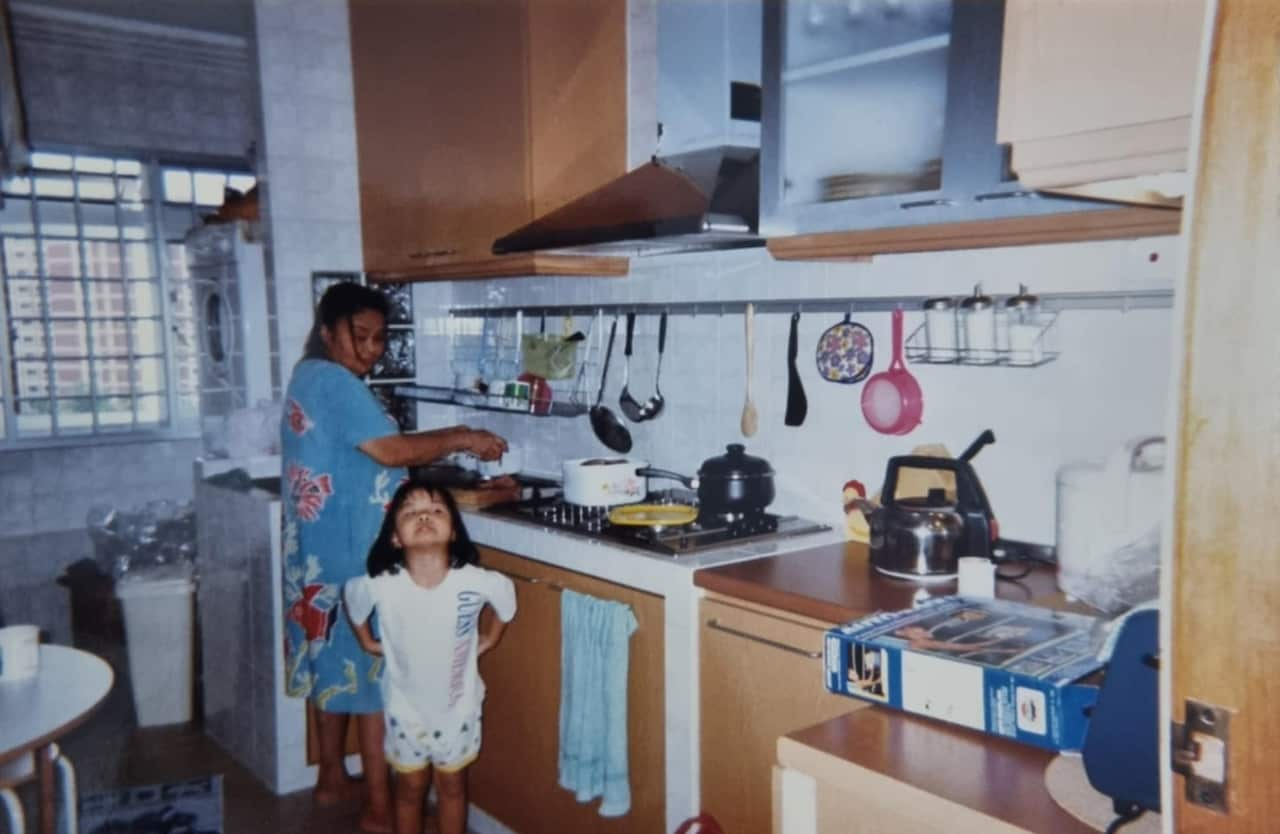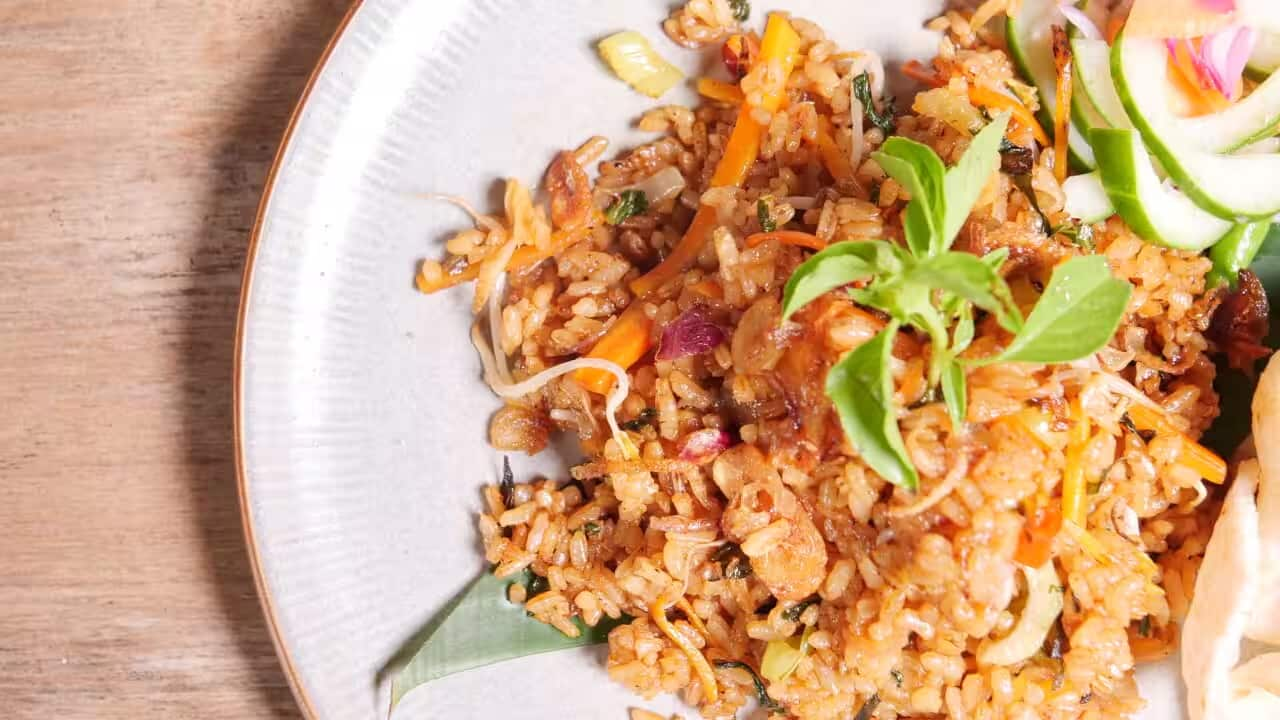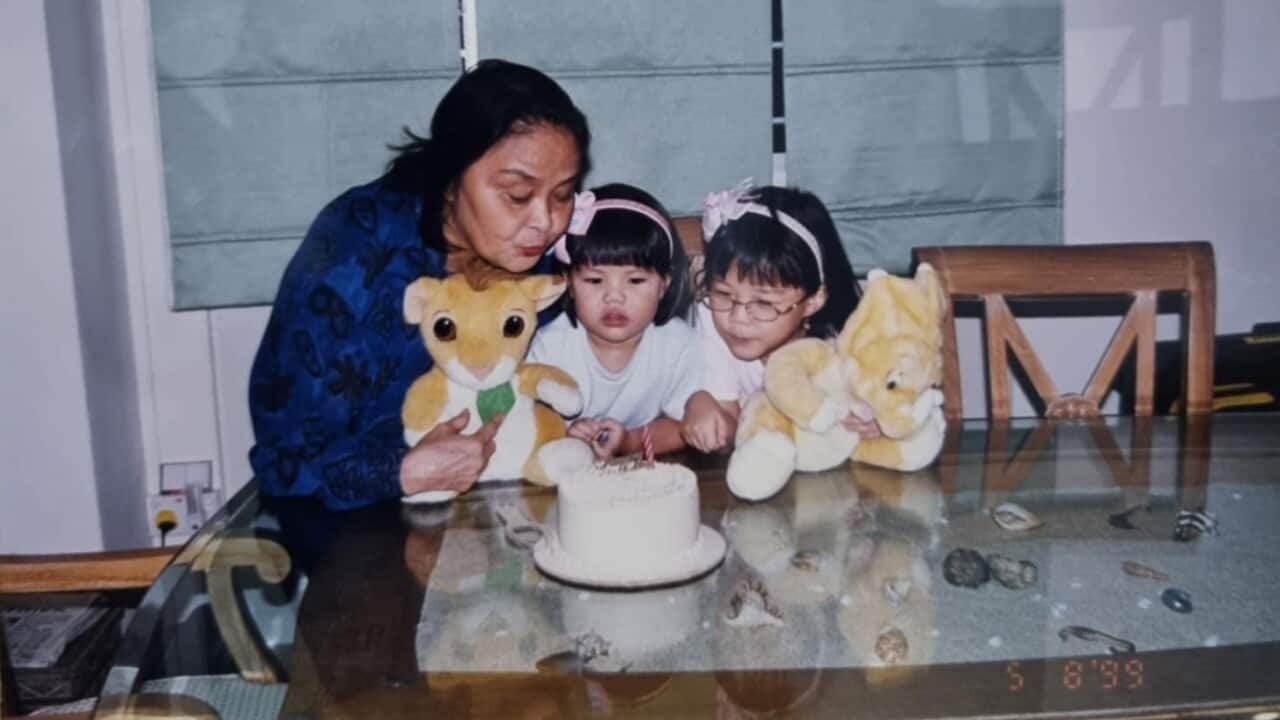In Indonesia, it is common for people to lean on grandmothers to look after their children while they are at work. Many gladly do, as their way of showing care toward the family. As part of this, grandmothers would cook meals for their grandchildren and also buy them treats. Indonesian children often grow up on their grandmother’s cooking.
My parents, sister and I migrated from Jakarta to Singapore when I was four-years–old. Later, after I turned eleven, we packed up our lives again and moved to Melbourne. My grandparents remained in Jakarta, where they had lived for most of their lives. But living in different countries did not mean that we never got to grow up on my grandmother’s cooking.
I count myself blessed to have experienced her through her food while she was still strong enough to stand and cook in the kitchen. My Ama, my mother’s mother, only speaks Bahasa and Mandarin. On top of that, she is a woman of few words. Whenever I see her, conversation is minimal. If you didn’t really know her, you would think she isn’t interested in connecting with her grandkids. But through her cooking, she relayed that she was always listening to my sister and I and always paying close attention.

During her visits to Singapore, my parents always assured Ama that she could kick her feet up and relax. She was on vacation after all. My parents would be at work, so nobody would be around to drive her. Despite this, she would still walk to the grocery store and wet market to get the ingredients she needed to cook different dinners almost every night for our family. Anytime I have sop buntut (ox tail soup), rawon (East Javanese beef soup) or sop merah (Indonesian tomato and prawn soup) at restaurants nowadays, it takes me right back to my childhood in Singapore. My Ama made these ‘soup and rice’ dishes especially for my sister and I because they were considered to be nourishing for growing bodies. These dishes have become hallmarks of my kindergarten and primary school years. My sister and I never fail to mention them every time we reminisce about that period of our lives. And when we do, we remember how intentionally our Ama looked after us.
As we got older, we graduated to the exciting world of Ama’s full culinary repertoire. Perkedel jagung (crispy corn fritters), tempeh oseng pedas manis (spicy and sweet stir fried tempeh), sayur asem (tamarind broth vegetable soup), rendang daging (Indonesian dry curry beef dish) and nasi goreng, were some of my favourites. If we so much as whispered that we enjoyed a particular dish, you could bet that she’d make it again. And just as chef Lara Lee recalls being mesmerised as a child by watching her Indonesian grandmother, her Popo, grinding ingredients into pastes in her SBS series Beyond Bali, you could also bet that Ama would spend hours making and freezing the pastes and bases for these dishes so that we would be able to replicate them after she’d gone back home to Jakarta.
Even before she boarded the plane to visit us in Singapore, and later on Australia, my Ama would already be thinking about us. I know this because she would spend weeks procuring pastries and snacks from across Jakarta, and sometimes other Indonesian cities, pack them all into a cardboard box that was taped excessively and secured with neon string, and bring it over to us. Sweets and treats aside, something I always looked forward to seeing in the cardboard box was oncom, a traditional Javanese ingredient made from fermented soybean pulp or peanut press cake. It was impossible to find in Singapore. Originally from Java, my Ama cooked a mean stir-fried oncom dish, with lots of fresh herbs, garlic, shallot and red chillies. It’s an Indonesian dish I crave often.

Even though bringing all these treats and ingredients meant that she had to cart around a heavy box on top of her own suitcase, and spend a longer time at Australian customs because she had declared food items, she insisted on doing it so that my sister and I would get to eat the foods we loved. Every time I see cardboard boxes tied with neon string circling the airport baggage carousel, I am reminded of my Ama. She often paid attention to what my sister and I loved, and committed this to memory. It was evident every time we opened the cardboard box.
My Ama turned ninety-one this year. Like grandmothers across many different cultures, food was one of the main ways she demonstrated her love and care toward us. How fortunate we were that my Ama was able to afford to travel, that my family could afford to travel, so that we got to experience her love for us in this way despite living in separate countries.
SBS Food is a 24/7 foodie channel for all Australians, with a focus on simple, authentic and everyday food inspiration from cultures everywhere. NSW stream only. Read more about SBS Food
Have a story or comment? Contact Us

